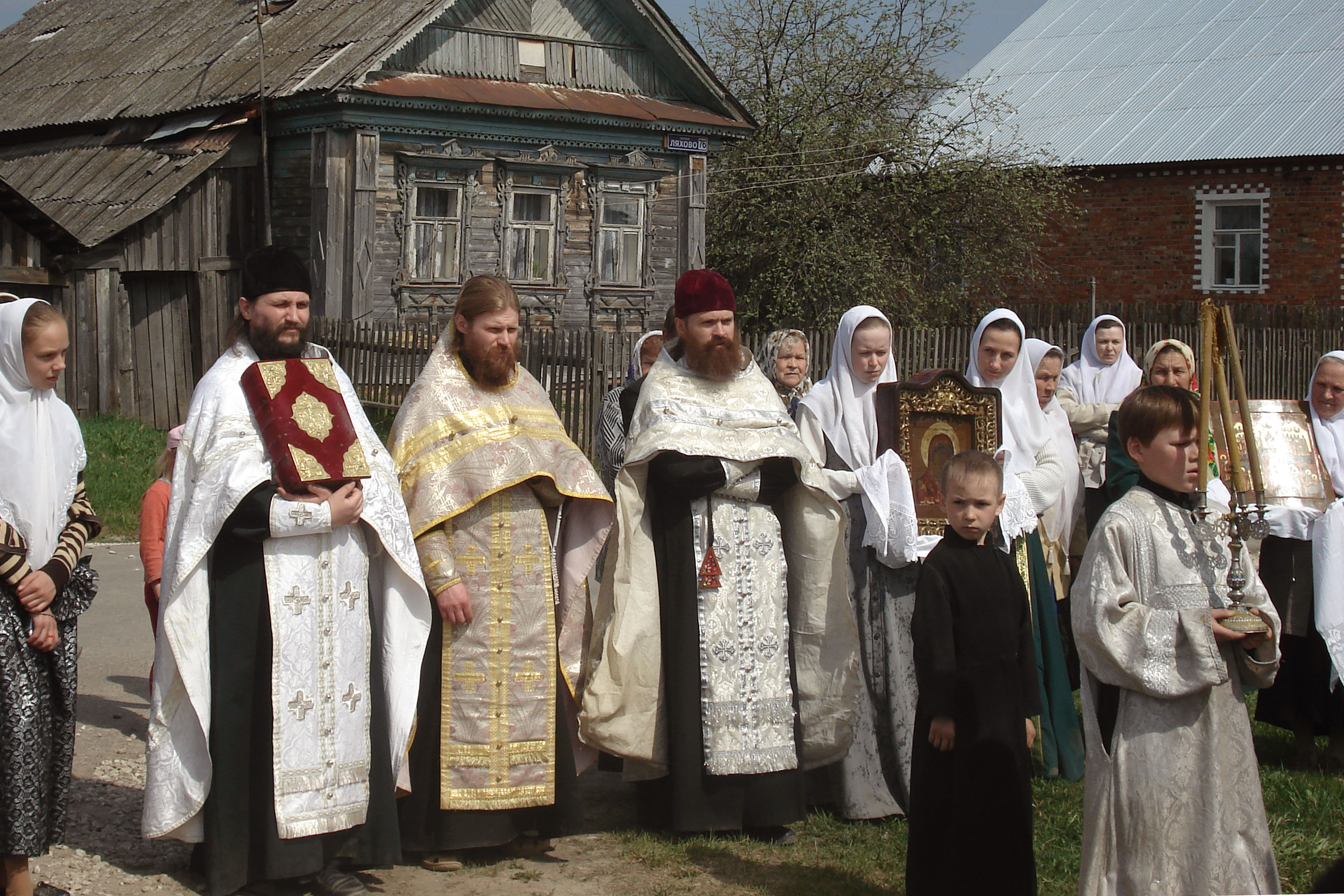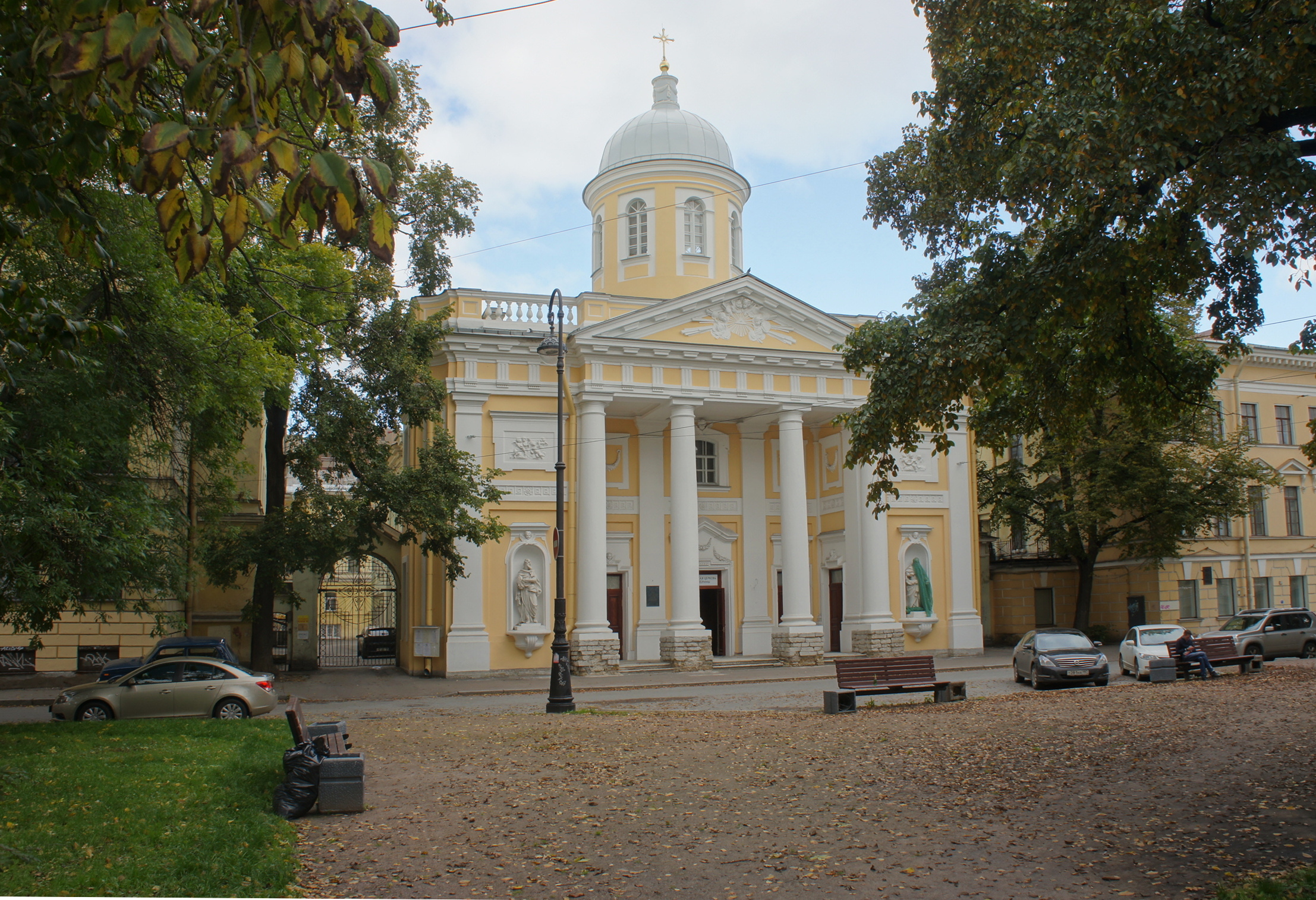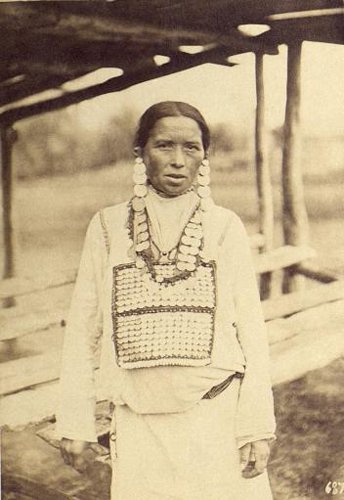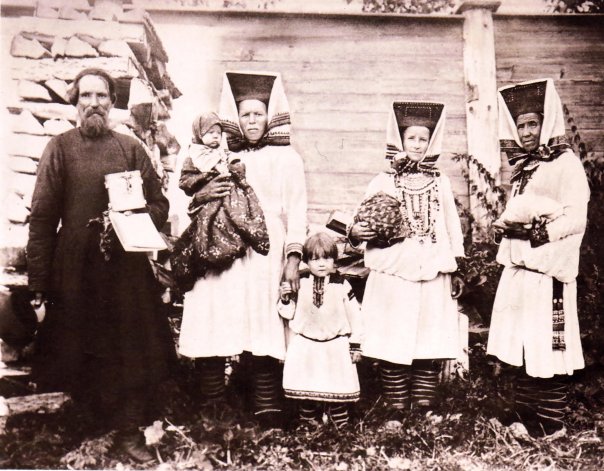|
Christianity In Russia
Christianity in Russia is the most widely professed religion in the country. The largest tradition is the Russian Orthodox Church. , viArchive.org/ref> According to official sources, there are 170 Eparchies and Metropolitanates of the Russian Orthodox Church, eparchies of the Russian Orthodox Church, 145 of which are grouped in metropolitanates. There are from 500,000 to one million Old Believers, who represent an older form of Russian Orthodox Christianity, and who separated from the Orthodox Church in the 17th century as a protest against Patriarch Nikon's church reforms. The Catholic Church estimates that there are from 600,000 to 1.5 million Catholics in the country, exceeding government estimates of about 140,000. There is one Catholic Archdiocese, Mother of God at Moscow, with three suffragan dioceses (Saint Clement at Saratov, Saint Joseph at Irkutsk, Transfiguration at Novosibirsk) and the Apostolic Prefecture of Yuzhno-Sakhalinsk. According to the Slavic Center for Law an ... [...More Info...] [...Related Items...] OR: [Wikipedia] [Google] [Baidu] |
Protestantism In Russia
Protestants in Russia constitute 1–2% (i.e. 1.5 million – 3 million adherents) of the overall population of the country. Additionally there are the Spiritual Christianity, Spiritual Christians, including around 15.000–20.000 Doukhobors and 40.000 Molokans in Russia, who have similarities to Protestantism. By 2004, there were 4,435 registered Protestant societies representing 21% of all registered religious organizations, which is second place after Eastern Orthodox Church, Eastern Orthodoxy. By contrast in 1992 the Protestants reportedly had 510 organizations in Russia. Many missionaries operating in the country are from Protestant denominations.''US State Department Religious Freedom Report on Russia, 2006'' According to a global survey conducted at the end of 2013, 1% of surveyed Russians identify as Protestants. History The first Protestant churches (Lutheranism, Lutheran, Reformed church, Reformed) in Russia appeared in the 16th and 17th centuries in major towns and ... [...More Info...] [...Related Items...] OR: [Wikipedia] [Google] [Baidu] |
Yakuts
The Yakuts or Sakha (, ; , ) are a Turkic ethnic group native to North Siberia, primarily the Republic of Sakha in the Russian Federation. They also inhabit some districts of the Krasnoyarsk Krai. They speak Yakut, which belongs to the Siberian branch of the Turkic languages. Etymology According to Alexey Kulakovsky, the Russian word was taken from the Evenki , while Marjorie Mandelstam Balzer claims the Russian word is actually a corruption from the Tungusic form. According to ethnographer Dávid Somfai, the Russian ''yakut'' derives from the Buryat ''yaqud'', which is the plural form of the Buryat name for the Yakuts, ''yaqa''. The Yakuts call themselves , or (Yakut: , ) in some old chronicles. All of these are derived from a word related to Turkish '' yaka'' (geographical edge, collar) referring to the Yakuts' remote position in Siberia. Origin Early scholarship An early work on the Yakut ethnogenesis was drafted by the Russian Collegiate Assessors I. Evers an ... [...More Info...] [...Related Items...] OR: [Wikipedia] [Google] [Baidu] |
Khakassians
The Khakas are a Turkic indigenous people of Siberia, who live in the republic of Khakassia, Russia. They speak the Khakas language. The Khakhassian people are direct descendants of various ancient cultures that have inhabited southern Siberia, including the Andronovo culture, Samoyedic peoples, the Tagar culture, and the Yenisei Kyrgyz culture, although some populations traditionally called Khakhassian are not related to Khakhassians or any other ethnic group present in the area. Etymology The Khakas people were historically known as ''Kyrgyz'', before being labelled as ''Tatar'' by the Imperial Russians following the conquest of Siberia. The name ''Tatar'' then became the autonym used by the Khakas to refer to themselves, in the form ''Tadar''. Following the Russian Revolution, the Soviet authorities changed the name of the group to ''Khakas'', a newly-formed name based on the Chinese name for the Kyrgyz people, ''Xiaqiasi''. History The Yenisei Kyrgyz were made to pay ... [...More Info...] [...Related Items...] OR: [Wikipedia] [Google] [Baidu] |
Ossetians
The Ossetians ( or ; ),Merriam-Webster (2021), s.v"Ossete" also known as Ossetes ( ), Ossets ( ), and Alans ( ), are an Iranian peoples, Iranian ethnic group who are indigenous to Ossetia, a region situated across the northern and southern sides of the Caucasus Mountains. They natively speak Ossetian language, Ossetic, an Eastern Iranian languages, Eastern Iranian language of the Indo-European languages, Indo-European language family, with most also being fluent in Russian language, Russian as a second language. Currently, the Ossetian homeland of Ossetia is politically divided between North Ossetia–Alania in Russia, and the ''de facto'' country of South Ossetia (recognized by the United Nations as Occupied territories of Georgia, Russian-occupied territory that is ''de jure'' part of Georgia (country), Georgia). Their closest historical and linguistic relatives, the Jasz people, Jász people, live in the Jászság, Jászság region within the northwestern part of the Jász-Na ... [...More Info...] [...Related Items...] OR: [Wikipedia] [Google] [Baidu] |
Chuvash People
The Chuvash people (, ; , ) also called Chuvash Tatars, are a Turkic ethnic group, a branch of the Oğurs, inhabiting an area stretching from the Idel-Ural region to Siberia. Most of them live in the Russian republic of Chuvashia and the surrounding area, although Chuvash communities may be found throughout Russia as well as in Central Asia. They speak Chuvash, a Turkic language that diverged from other languages in the family more than a millennium ago. Among the Chuvash believers, the majority are Eastern Orthodox Christians although a minority follow Vattisen Yaly or Sunni Islam. Etymology There is no universally accepted etymology of the word ''Chuvash'', but there are two theories. One theory suggests that the word ''Chuvash'' may be derived from Common Turkic ''jăvaş'' ('friendly', 'peaceful'), as opposed to ''şarmăs'' ('warlike'). Another theory is that the word is derived from the '' Tabghach,'' an early medieval Xianbei clan and founders of the Northern ... [...More Info...] [...Related Items...] OR: [Wikipedia] [Google] [Baidu] |
Komi Peoples
The Komi ( also ) are a Permians, Permian ethnic group who are indigenous to, and primarily inhabit a region around the basins of the Vychegda, Pechora River, Pechora and Kama river, Kama rivers in northeastern European Russia. They mostly reside in the Komi Republic, Perm Krai, Murmansk Oblast, Khanty–Mansi Autonomous Okrug, and Nenets Autonomous Okrug in the Russia, Russian Federation. Name There have been at least three names for the Komi: ''Permyaks'' (), ''Zyrians'' (), and ''Komi'' (). The name ''Permyaks'' first appeared in Russian sources in the 10th century and came from the ancient name of the land between the Mezen River, Mezen and Pechora River, Pechora rivers – ''Perm'' or ''Great Perm'' (). Several origins of the name have been proposed, but the most accepted is from Veps language, Veps '''' "back, outer or far-away land". In Old Norse and Old English, it was known as ''Bjarmaland'' and '''' respectively, but those Germanic names designate a wider area than the R ... [...More Info...] [...Related Items...] OR: [Wikipedia] [Google] [Baidu] |
Mordvins
Mordvins (also Mordvinians, Mordovians; ; no equivalents in Moksha language, Moksha and Erzya language, Erzya) is an official term used in Russia and the Soviet Union to refer both to Erzyas and Mokshas since 1928. Names While Robert Gordon Latham, Robert G. Latham had identified ''Mordva'' as a self-designation, identifying it as a variant of the name ''Mari people, Mari'', Aleksey Shakhmatov in the early 20th century noted that ''Mordva'' was not used as a self-designation by the two Mordvinic tribes of the Erzya and Moksha. Nikolai Mokshin again states that the term has been used by the people as an internal self-defining term to constitute their common origin. The linguist underlines that the Mordvins do not use the name 'Mordvins' as a self-designation. Feoktistov wrote "So-called Tengushev Mordvins are Erzyans who speak the Erzyan dialect with Mokshan substratum and in fact they are an ethnic group of Erzyans usually referred to as Shokshas. It was the Erzyans who histo ... [...More Info...] [...Related Items...] OR: [Wikipedia] [Google] [Baidu] |
Mari People
The Mari ( ), also formerly known as the Cheremis or Cheremisses, are a Finno-Ugric peoples, Finno-Ugric people in Eastern Europe, who have traditionally lived along the Volga and Kama River, Kama rivers in Russia. They live mostly in the Mari El republic, with significant minorities in Bashkortostan, Perm Krai, Tatarstan and Udmurtia. Name The ethnic name ''mari'' derives from the Proto-Indo-Iranian root *''márya''-, meaning 'human', literally 'mortal', which indicates early contacts between Finno-Ugric languages, Finno-Ugric and Indo-Iranian languages. Subgroups There are two main ethnographic subgroups of Mari people: Meadow Mari people, Meadow Mari, who live on the right bank of the Volga river, and Hill Mari people, Hill (or Mountain) Mari, who live on the left bank. The ethnogenesis of these two subgroups, and formation of distinct dialects, probably took place in the 14th century. Meadow Mari comprise the majority of Mari, and Meadow Mari language, their language va ... [...More Info...] [...Related Items...] OR: [Wikipedia] [Google] [Baidu] |
Karelians
Karelians (; ; ; ) are a Baltic Finnic ethnic group who are indigenous to the historical region of Karelia, which is today split between Finland and Russia. Karelians living in Russian Karelia are considered a distinct ethnic group closely related to Finnish Karelians, who are considered a subset of Finns. This distinction historically arose from Karelia having been fought over and eventually split between Sweden and Novgorod, resulting in Karelians being under different cultural spheres. In Russia, Karelians mostly live in the Republic of Karelia, where they are the designated ethnic group, and in other adjacent north-western parts of the country. They traditionally speak the Karelian language and are Eastern Orthodox Christians. There are also significant Karelian enclaves in the Tver and Novgorod oblasts, as some Karelians migrated to those areas after the Russo-Swedish War of 1656–1658. In Finland, the term Karelian generally refers to the Finnish Karelians, who ... [...More Info...] [...Related Items...] OR: [Wikipedia] [Google] [Baidu] |
Russians
Russians ( ) are an East Slavs, East Slavic ethnic group native to Eastern Europe. Their mother tongue is Russian language, Russian, the most spoken Slavic languages, Slavic language. The majority of Russians adhere to Eastern Orthodox Church, Orthodox Christianity, ever since the Middle Ages. By total numbers, they compose the largest Slavs, Slavic and Ethnic groups in Europe, European nation. Genetic studies show that Russians are closely related to Polish people, Poles, Belarusians, Ukrainians, as well as Estonians, Latvians, Lithuanians, and Finns. They were formed from East Slavic tribes, and their cultural ancestry is based in Kievan Rus'. The Russian word for the Russians is derived from the Names of Rus', Russia and Ruthenia, people of Rus' and the territory of Rus'. Russians share many historical and cultural traits with other European peoples, and especially with other East Slavic ethnic groups, specifically Belarusians and Ukrainians. The vast majority of Russians ... [...More Info...] [...Related Items...] OR: [Wikipedia] [Google] [Baidu] |






